The year I graduated high school – 1984 – was the year Columbia University began admitting women. That year, I was looking at colleges, and I was at some luncheon or another, seated across from a clean cut young man in a white shirt and a tie. I remember it was lunch, because when this young man asked me, “have you thought about going to Columbia?” I nearly spit out my soup. Me? Columbia? Who could afford Columbia? Maybe this WASPY kid in a tie. But not me. I’d been given a budget within which, given my parents utter lack of middle-class savings, my working summers, and a few scholarships and student loans, it was acceptable – conceivable - to look. Columbia wasn’t even in the running. I would get a nosebleed even looking at Columbia.
10 years later, I was accepted to graduate school at Columbia’s MFA Fiction program. Which, I like to remind people, is actually harder to get into than the Film Program. But I digress. I took on an amount of debt for an annual tuition that actually exceeded any annual salary I’d had up to that point in my 26 year old life, and I took the plunge. I was so excited. I felt validated. I thought I was going to graduate with a completed novel and an agent, or at least a few solid leads into the New York publishing world. I handed in my pages for my first writing workshop, confident that I had finally arrived.
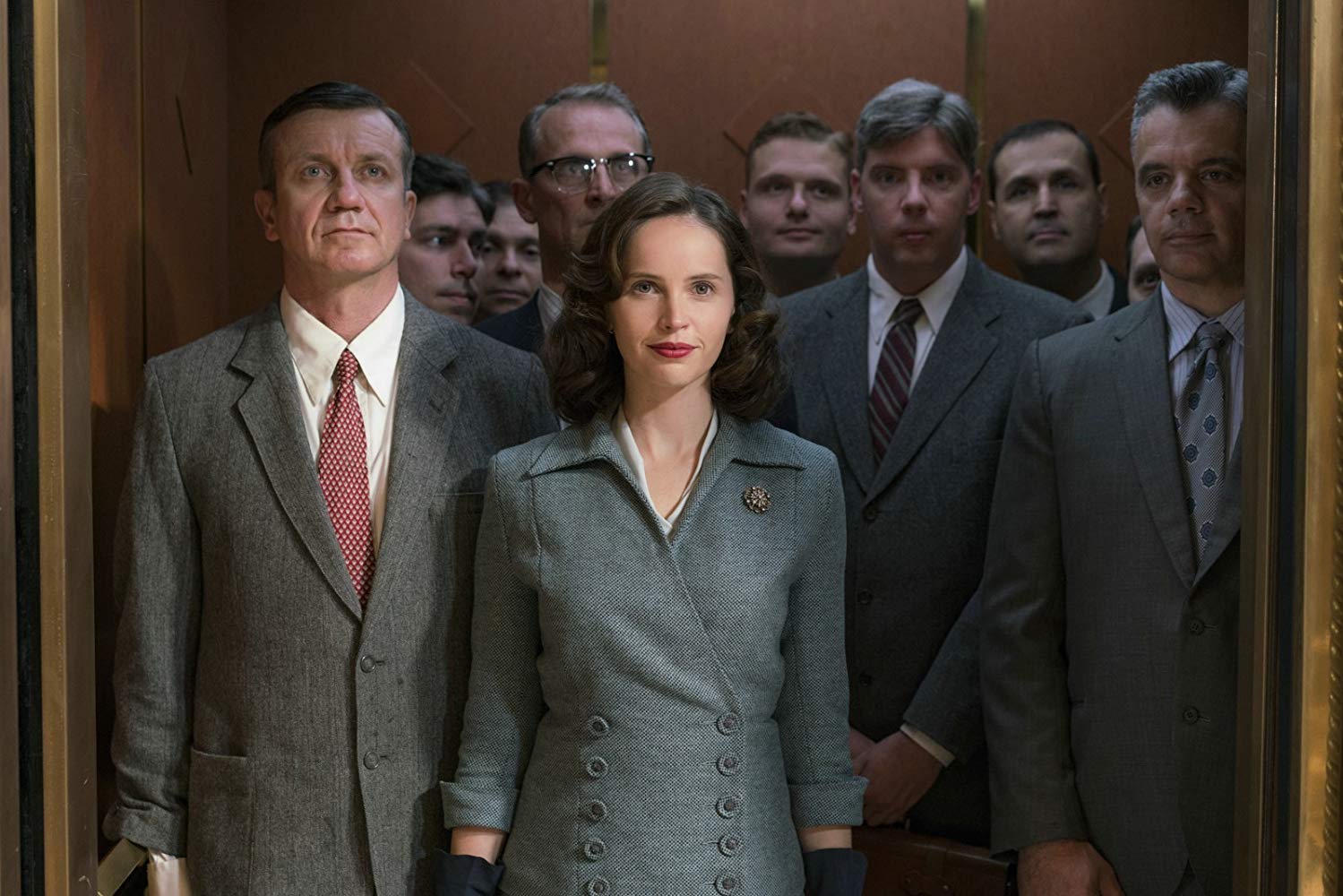
On the first day, my professor – the Dean of the College - held up the first chapter of my novel. “Whose is this?” he asked. I raised my hand. Smiling. Expectant. He looked at me. He smirked. And proceeded to use my pages as a springboard for a twenty minute lecture on how the cinematic, in prose, is the fault of our generation. We watch too much TV. We have no attention span. And that, he concludes, is why I have such abrupt transitions in my prose, because my brain jump cuts from one thing to another and I can’t concentrate. He can’t take the transitions in my prose seriously, because it never occurs to him that they might be intentional.
Why am I telling you this? Why do you care about my autobiography? Well, maybe you don’t. But in the beginning of ON THE BASIS OF SEX, at a dinner party for the 9 women admitted to study at Harvard Law, who are all there, in their best clothes, excited, expectant, eager to make a good impression – the Dean stands up to welcome them. “Esteemed colleagues. Ladies,” he says, making it perfectly clear that these are two mutually exclusive groups. “Let’s go around the room, and you can introduce yourselves and explain why you are here taking up a position that could have gone to a Harvard man.”
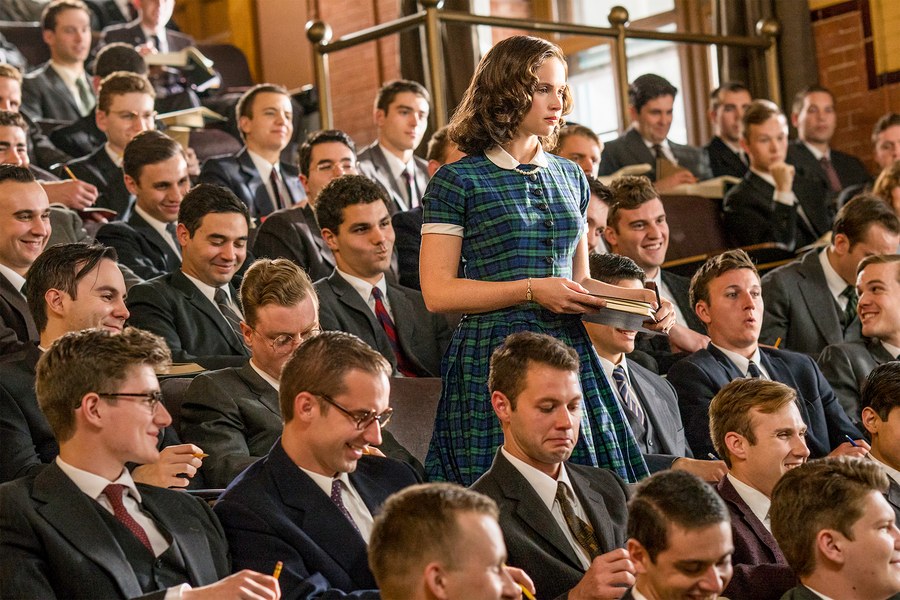
Why Are You Here. And suddenly, the women are standing there stuttering, trying to explain to a hostile room why they exist and are taking up space in a men’s institution. It’s excruciating, and wince-worthy, and stupid. “We’re here because we want to be lawyers,” RBG fumes later, to her husband, as she throws a shoe into the closet. “What’s hard to understand about that?”
I’m telling you this because, watching this scene, I was reminded of two things. 1) That asshole professor at Columbia who decided to deliver a gut punch to my ambition the first day of class. And 2) That the world that I stepped into, 20 years later, was not that far removed from the world depicted in ON THE BASIS OF SEX. That when Ruth Bader Ginsburg graduated top of her class and went to twelve law firms, and couldn’t get a job at one of them, and had to take a teaching position for a decade before she represented her first case, that was not that long ago. It may seem like it is – so much in the past, for instance, that the movie spends no time at all justifying Why She Is Here at Harvard and Columbia, at a time when women really didn’t get into either one. But the fact that it does not feel the need to justify the female protagonist’s existence is a minor miracle. The movie is WITH Ruth. It is not EXPLAINING Ruth. And that, in and of itself, is amazing.
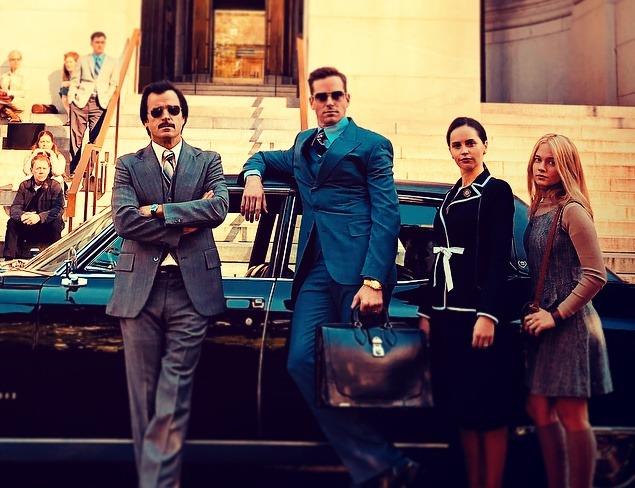
ON THE BASIS OF SEX is a movie about intergenerational feminism. In a world where one man stands alone against a blah blah blah in literally every single movie out there, the story of Ruth Bader Ginsburg is not just about Ruth Bader Ginsburg. It’s about her daughter. It’s about her husband. It’s about the women who came before her, and the women who came after her. It’s about the man whose case she takes, and how he shouldn’t fear being publicly humiliated for taking care of his mother. It’s about the asshole professors who told her she didn’t matter. It's about the ACLU lawyers who told her she didn't have a case. It doesn’t spend inordinate amounts of time on questions nobody cares about, like “Who is babysitting the kid?” (which, omg, I was cringing and waiting for since that seems to be a subplot of every so-called “feminist” movie out there – and the actual plot of INCREDIBLES 2.)
Instead, it shows the dreams, aspirations, and struggles of three generations of women fighting for equal rights – Dorothy Kenyon, a civil rights attorney from the Wobblies generation, Ruth Bader Ginsburg, and her daughter, Jane Ginsburg. It shows a woman who stands up against injustice, who isn’t alone. She has the full support of her family – and that support is natural, loving, and desirable. It shows a man who enjoys cooking for his family, who isn’t even Italian. It shows a relationship between true equals and partners, that feels contemporary - and it’s not a big deal.

Felicity Jones makes RBG relatable as a feminist and not “too angry,” and makes it look effortless, which honestly, should be a separate Oscar category and we should all be up for it. But she wins it in a walk. Armie Hammer is fantastic and charming as Ruth’s young husband, Marty Ginsburg. Cailee Spaeny is perfect as Ruth’s sulking hippie teenager daughter, Jane. But the real gem of this movie is Kathy Bates as Dorothy Kenyon – a groundbreaking civil rights lawyer from the 30s who, I’m embarrassed to say, I’d never heard of before – who’s so ground down by the legal battle for women’s rights after 30 years that she basically tells RBG not to waste her time on it. This, after Ruth brings Jane to see Dorothy, to be inspired by her struggle. But Kenyon isn’t “inspiring.” She’s human. She’s tired. And her one hard-earned lesson, which she imparts to the Ginsburgs: “Our mistake was thinking that we had won.”
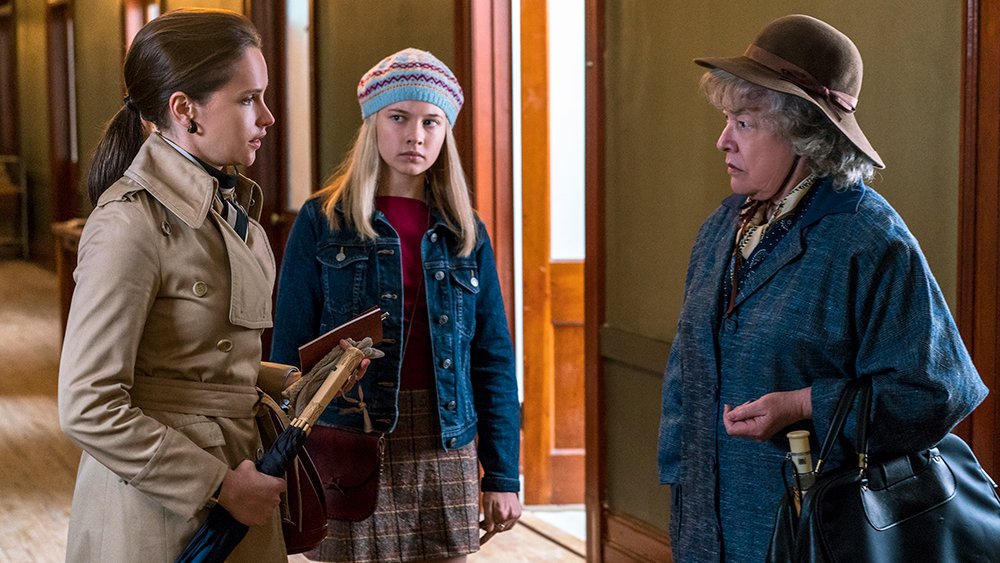
And that, ladies and esteemed colleagues, is what change feels like when it’s happening. It is not inspirational. It is hard. It is tiring. It’s no fun at all to lay your body over the barbed wire and hope the “next generation” walks over you. And it’s really hard not to be bitter when everyone tells you what a difference you could make for those who come after you, but it makes no difference for you, because all your achievements are overlooked. One of the best moments in the movie is when Marty Ginsburg turns to Ruth and asks why she isn’t happy to be an esteemed professor, training the next generation of 70’s feminists. “They’re going to break through,” he says. “I WANTED TO BREAK THROUGH,” Ruth finally blurts out. And that’s a struggle I’ve never actually seen on screen before, and that really resonates with me.
This might be a good time to talk about Mimi Leder, the deft director of this film, who, after directing PAY IT FORWARD in 2000, apparently fell off the studios’ major motion picture call lists for EIGHTEEN YEARS (unless we’re counting 2009’s THICK AS THIEVES? Anyone? No? I didn’t think so.) This is the woman who directed DEEP IMPACT in the 90s. Soooo… it’s not that she isn’t capable, and didn’t make a movie that made BUNDLES OF MONEY for the studios. But somehow she wasn’t getting the calls.
The narrative of equality in America, from the outside, is this: it used to be worse. Now it is better. Look how much better it is now. Look how much worse it used to be. Wow, in MAD MEN, men drank martinis and stared at women’s boobs. The past is a safe place to dump all the parts of our culture that we don’t want to admit still exist, and are the basis of our institutions. Today, you can eat at lunch counters and get a credit card! You’ve come a long way, baby.
The narrative of equality in America, from the inside, feels much more circular. We have to keep fighting, and sometimes we have to keep fighting without looking like we're fighting, which is even more tiring. Every generation comes back to the same battles, in new ways. We all know that we are this close to losing whatever gains we may have won, as soon as the wind blows a different way. That we are hyper-visible, representative and accountable for our entire cohort. The past is never that far away. It’s in our institutions, it’s in our salaries, it’s in who gets to stand at the mike and make opening arguments, even when the other one is an expert in their field. Hope for the future lies in young women like Jane Ginsburg being able to wear short skirts, and tell catcallers to go f$%* themselves. And it lies in people like Ruth Bader Ginsburg looking at the history of the law, penning scathing dissents, and setting precedents.
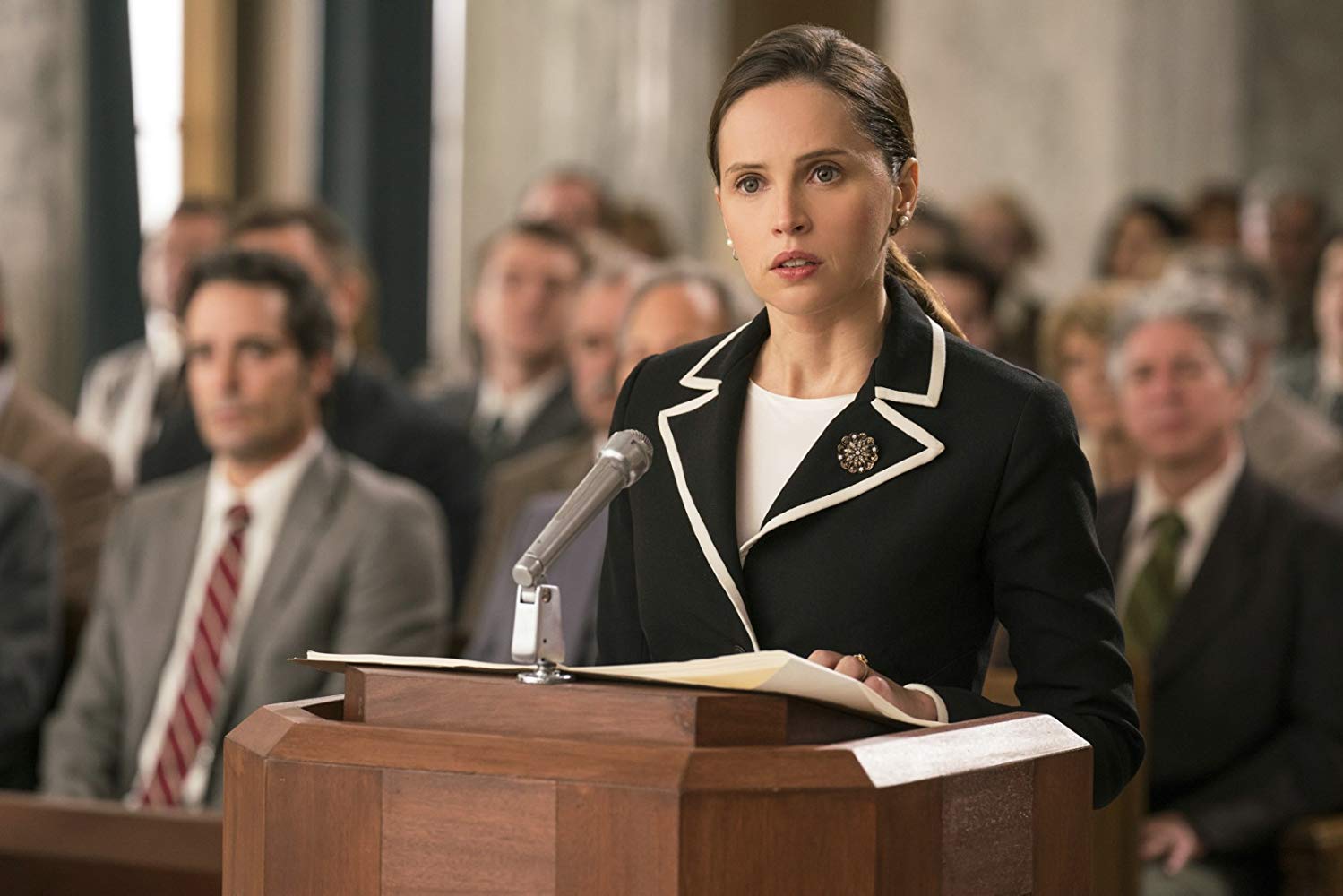
In many respects, ON THE BASIS OF SEX is a pretty conventional, feel-good biopic. But in the ways that matter, it is utterly revolutionary. It actually changes the film narrative of feminism by making the personal, political. It doesn’t just tell you about microaggressions. It asks you to feel them. Like Notorious RBG herself, it quietly, intelligently, sets a new precedent.
I hope Mimi Leder gets a nomination for it.
Peace out,
Notorious Roni Rampant
